
Senior Community Food Systems Manager

Community Outreach Coordinator

Farm to School Fellow
Attendees of the Summer Retreat. Photo credit: Ben Anang via FLI Social
From July 8-10 this summer, Ecotrust and its project partners hosted the K-12 Farm to School Institute Summer Retreat at the Oregon Garden Resort in Silverton, Ore. The retreat brought together about 75 attendees for three days of inspiration, abundance, and connection.
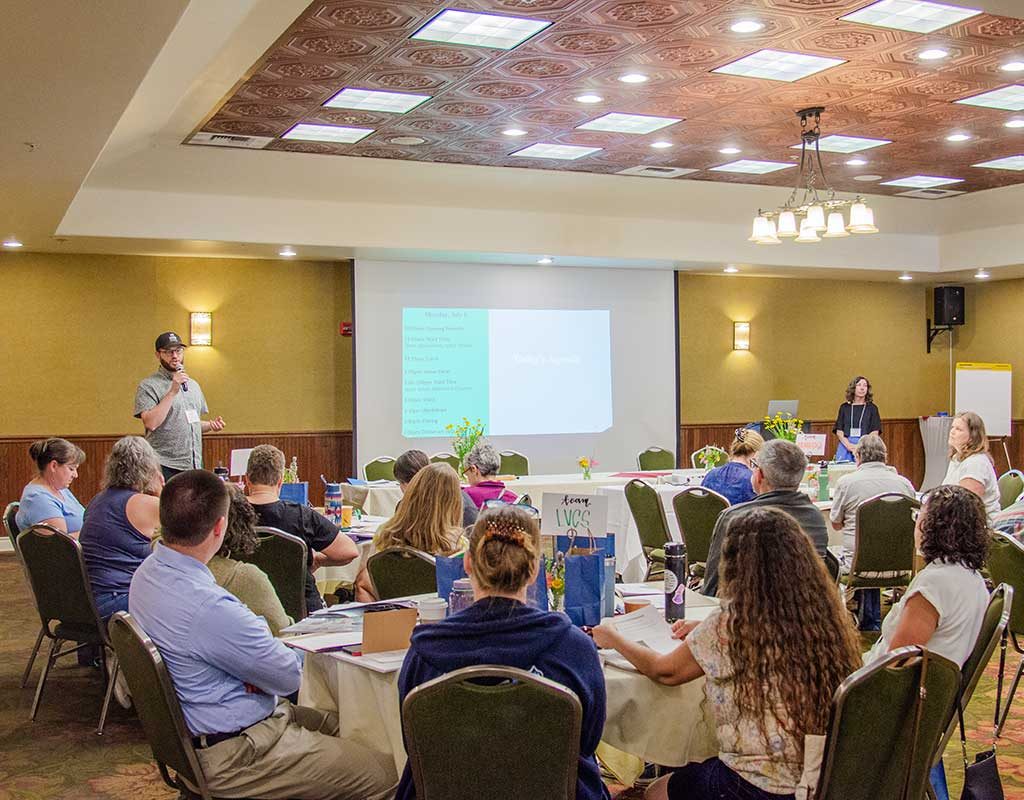
Photo credit: Tony Sterling
This Summer Retreat kicked off the year-long Institute program for nine school and district teams. Each of the nine participating teams have five or more members. Members represent key roles in farm to school, including administration (superintendent, principal, and/or school board member), child nutrition professionals, classroom teachers, garden educators, other school staff (nurse, specialist, liaison, etc), and community partners. The teams are developing action plans using the 3 Cs model of change strategies—connecting the classroom, cafeteria, and community—that will help them achieve their farm to school goals.
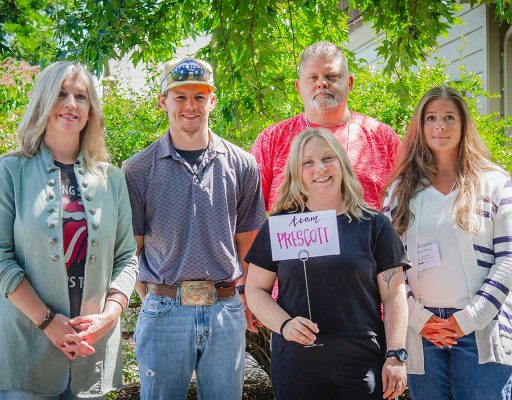
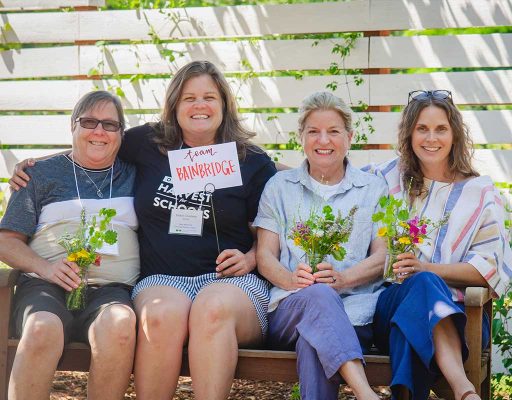
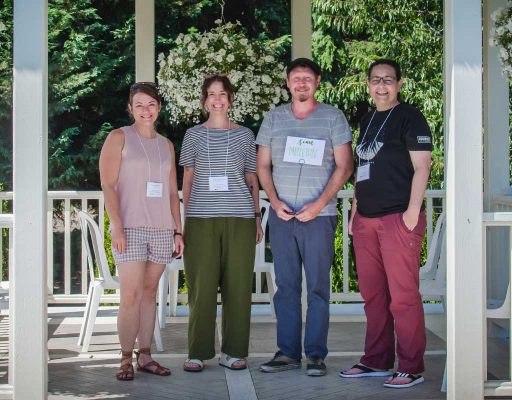
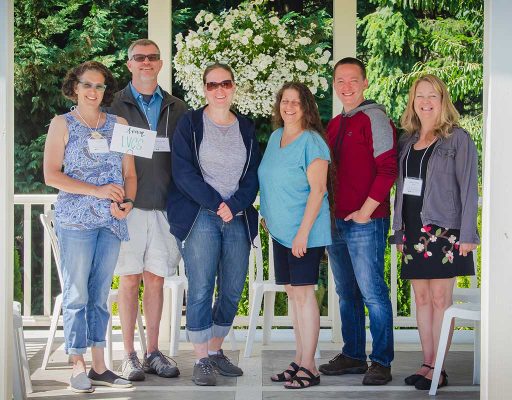
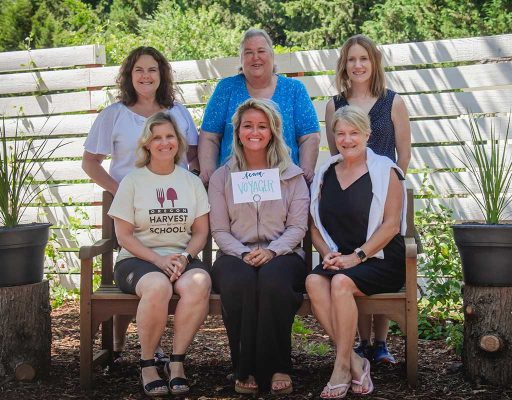
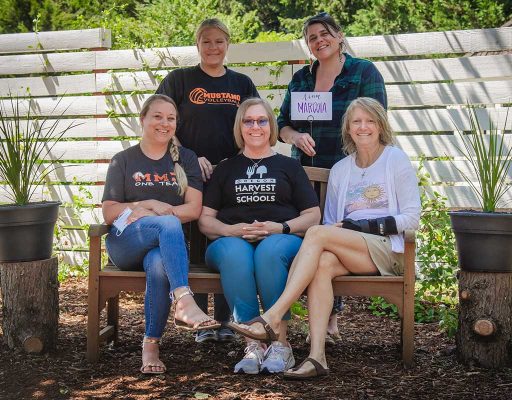
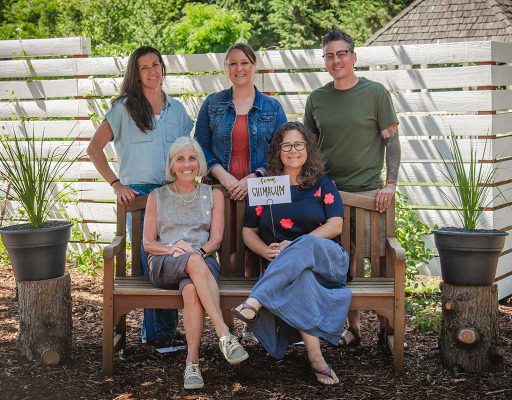
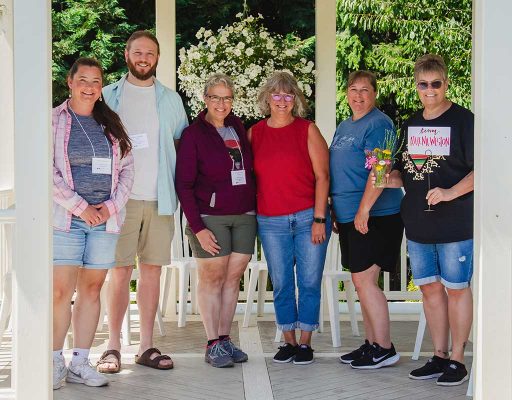
The K-12 Farm to School Institute teams.
Photo credit: Tony Sterling
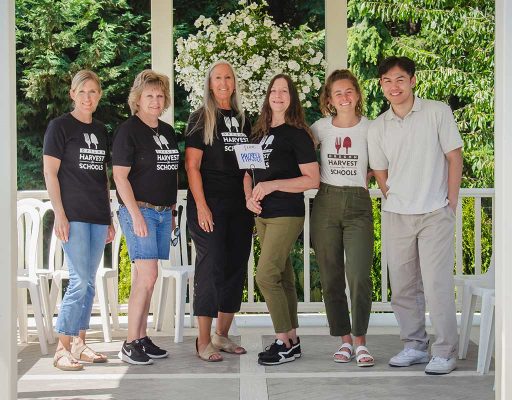
The agenda included two panel discussions, additional workshops, and time for the teams to get grounded in their values, action plan with their coaches, enjoy locally sourced meals, and learn from their peers.
The first panel discussion, titled “What is your ‘why’ for Farm to School?”, featured panelists:
The panelists spoke beautifully to the importance of values-centered Farm to School programming and leadership. When asked about her “why,” Kim Leung expressed: “My “why” is to create a healthier, more sustainable future for our children and our planet. I believe that by connecting students with the source of their food and teaching them about the importance of nutrition and sustainable agriculture, we can foster a generation that values health, community, and the environment. This work is not just about providing meals; it’s about nurturing a holistic understanding of wellness, stewardship, and social responsibility.”

The “What is your ‘why’ for Farm to School?” panel. Photo credit: Tony Sterling
The second panel, “Equity in Action,” featured speakers:
This panel focused on racial equity and culturally affirming local foods and education, as well as equitable and inclusive family and community engagement.
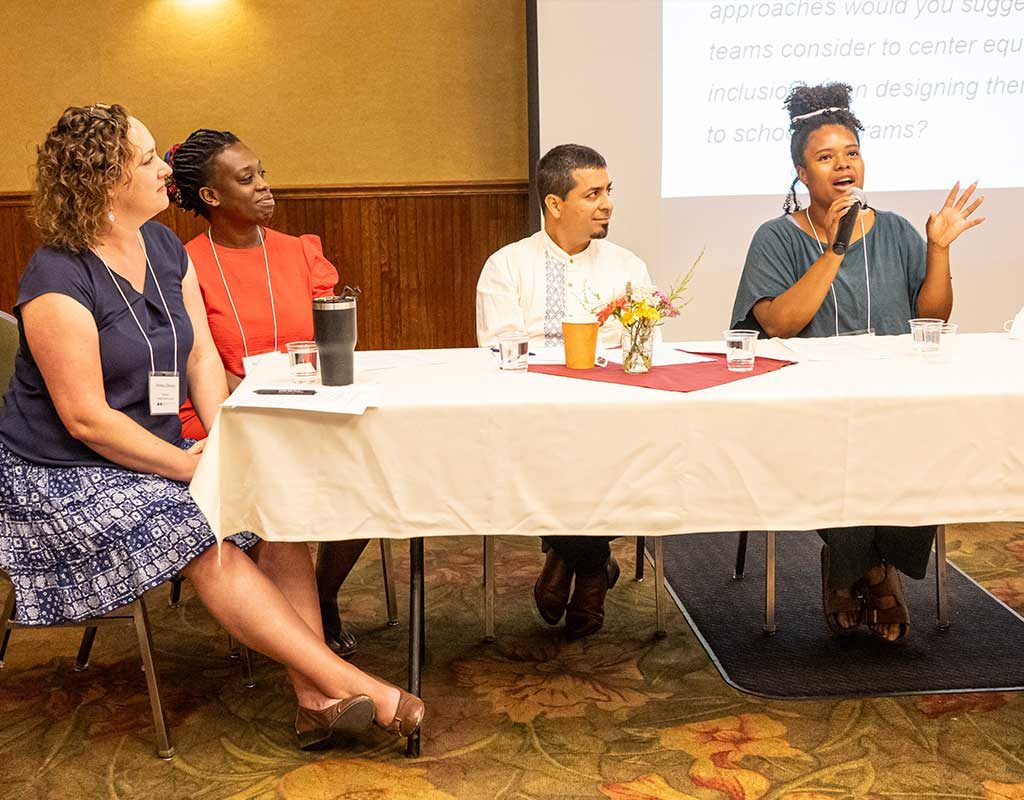
The “Equity in Action” panel. Photo credit: Tony Sterling
The retreat also provided a fantastic lineup of workshops and presenters. Mariana Harvey, Educator, and Kim Gaffi, Educator, Tahoma Peak Solutions brought a workshop titled “Tend, Gather, Grow for Educators.” It introduced educators to a K-12 curriculum focused on native and naturalized plants of the Pacific Northwest region. Attendees got a chance to make dandelion root tea and rose hip jam while exploring how their students might explore themes in cultural ecosystems, herbal medicine, plant technologies, tree communities, and wild food traditions.
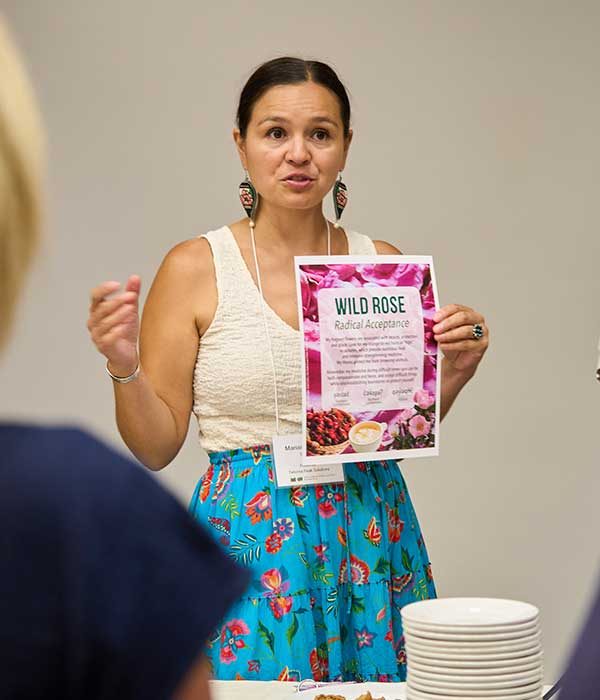
Mariana Harvey teaches about wild rose. Photo credit: Ben Anang via FLI Social
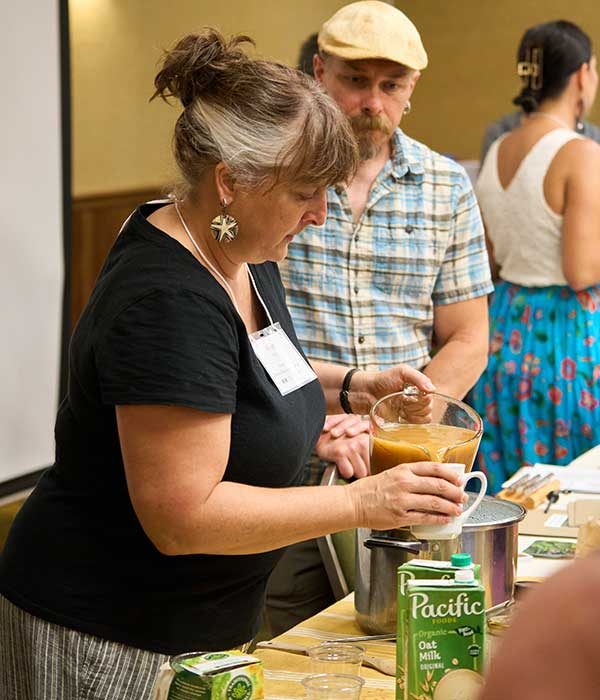
Kim Gaffi prepares dandelion root tea. Photo credit: Ben Anang via FLI Social
Jessica Visinsky, Operations & Policy Analyst for Child Nutrition Programs of Oregon Department of Education, and Crista Hawkins, RDN, LD, Youth Wellness Senior Director of Oregon Dairy and Nutrition Council, led a workshop called “Incorporating Local Food Through Scratch Cooking, Speed Scratch, and Freshly Prepared Meals.” Participants explored a fun menu creation activity by naming and tasting a new dish based on the local ingredients provided.
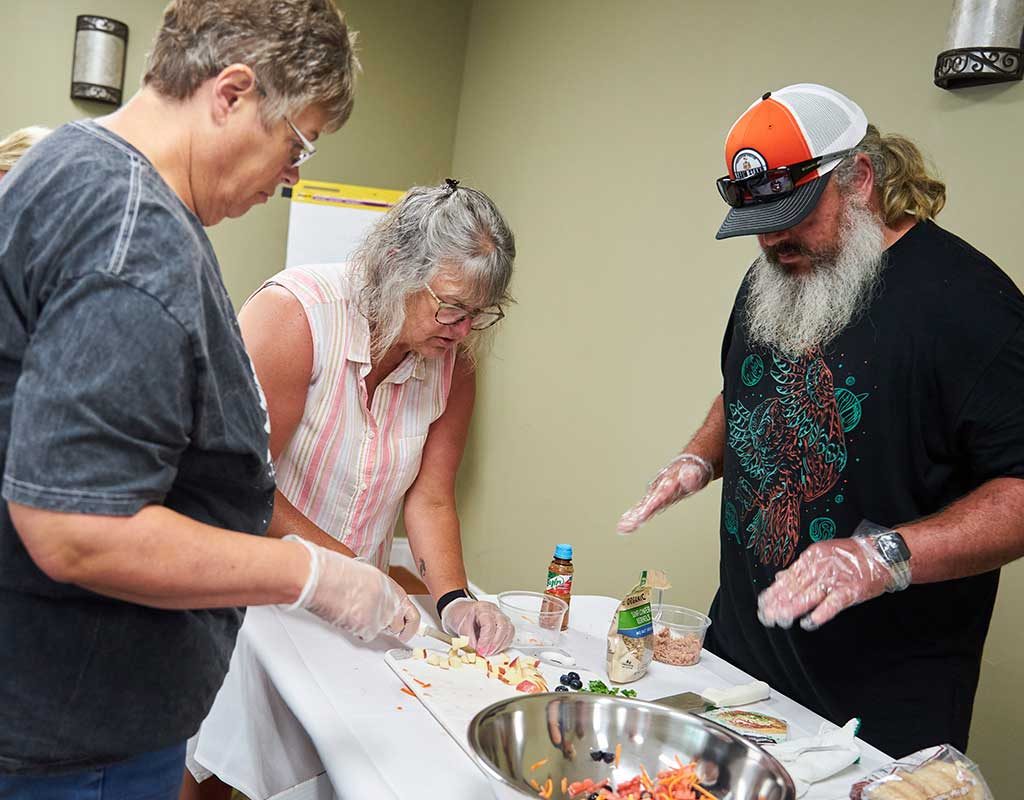
The “Incorporating Local Food Through Scratch Cooking, Speed Scratch, and Freshly Prepared Meals” workshop Photo credit: Ben Anang via FLI Social
Coaches are key to the Farm to School Institute model, providing on-going facilitation, technical assistance, and support for their teams. Coaches for the Institute were carefully selected from the same regions as their teams and have extensive farm to school expertise and facilitation training. During the retreat, coaches had dedicated time with their teams to work on group agreements, understand each others’ roles, craft values statements, and begin their action plan.
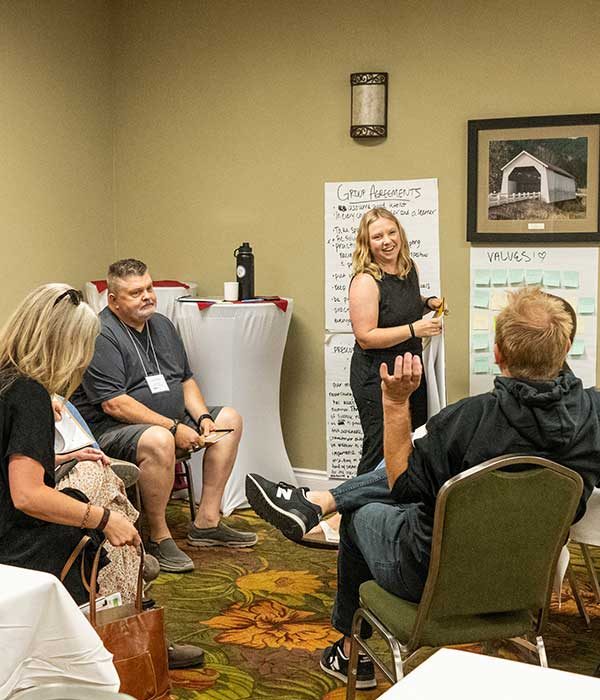
Photo credit: Ben Anang via FLI Social
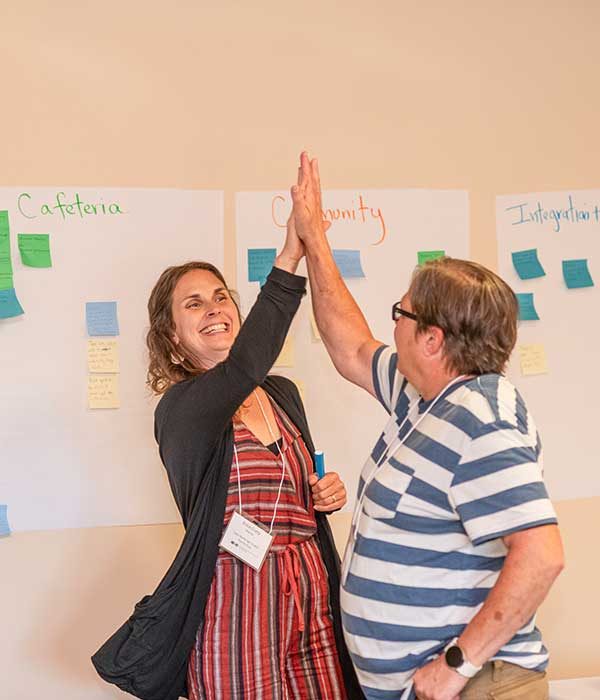
Photo credit: Ben Anang via FLI Social
Prior to the retreat, Institute team members shared that they would like to leave the retreat feeling ready to implement their action plan and having a shared vision and framework. By the end of the three days, participants provided positive feedback to the retreat experience, using descriptive words like belonging, held, energized, hopeful, and inspired. Team members mentioned that key changes they witnessed within their teams were being able to share goals, collaborate, and feel closer as a team.
“
—Retreat participant
“
—Retreat participant
“
—Retreat participant
Overall, both organizers and participants appreciated the time to convene and connect. In true farm to school fashion, the meals throughout the retreat featured locally procured ingredients from Our Table Cooperative, Deck Family Farm, Marantha Farms, Fisherman Direct, Rainshine Family Farm, and Dogwild Farm.
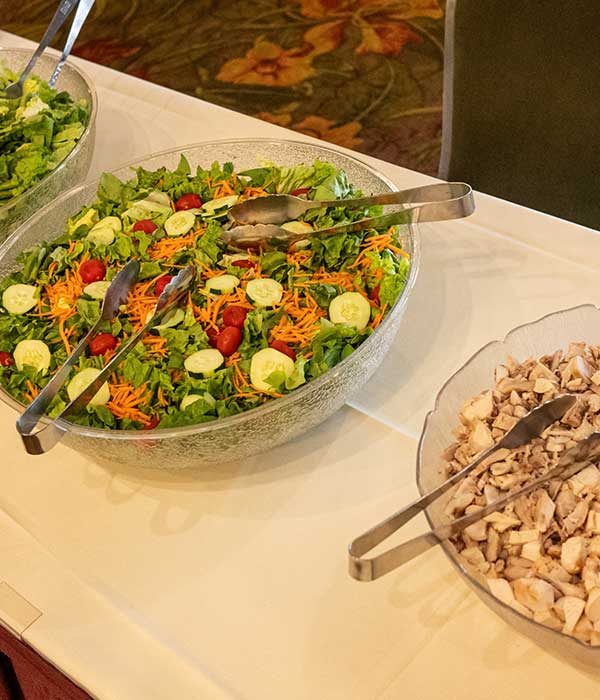
Photo credit: Ben Anang via FLI Social
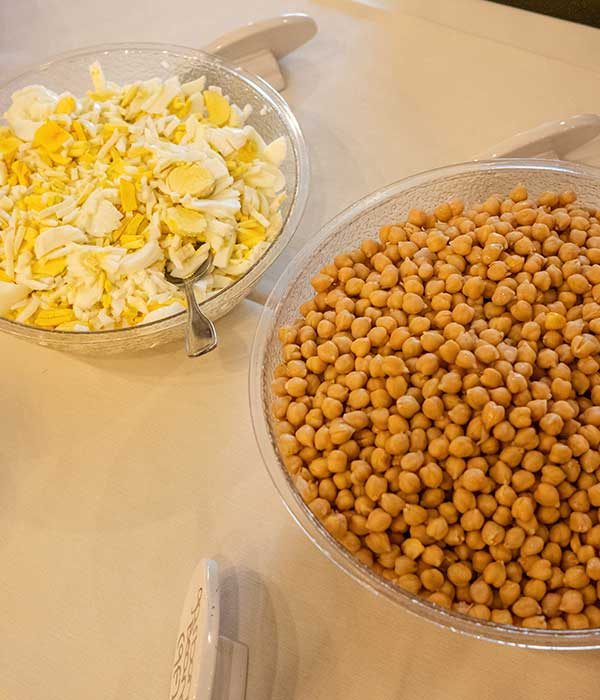
Photo credit: Ben Anang via FLI Social
Many thanks to all the staff and partners who have and continue to support this effort.
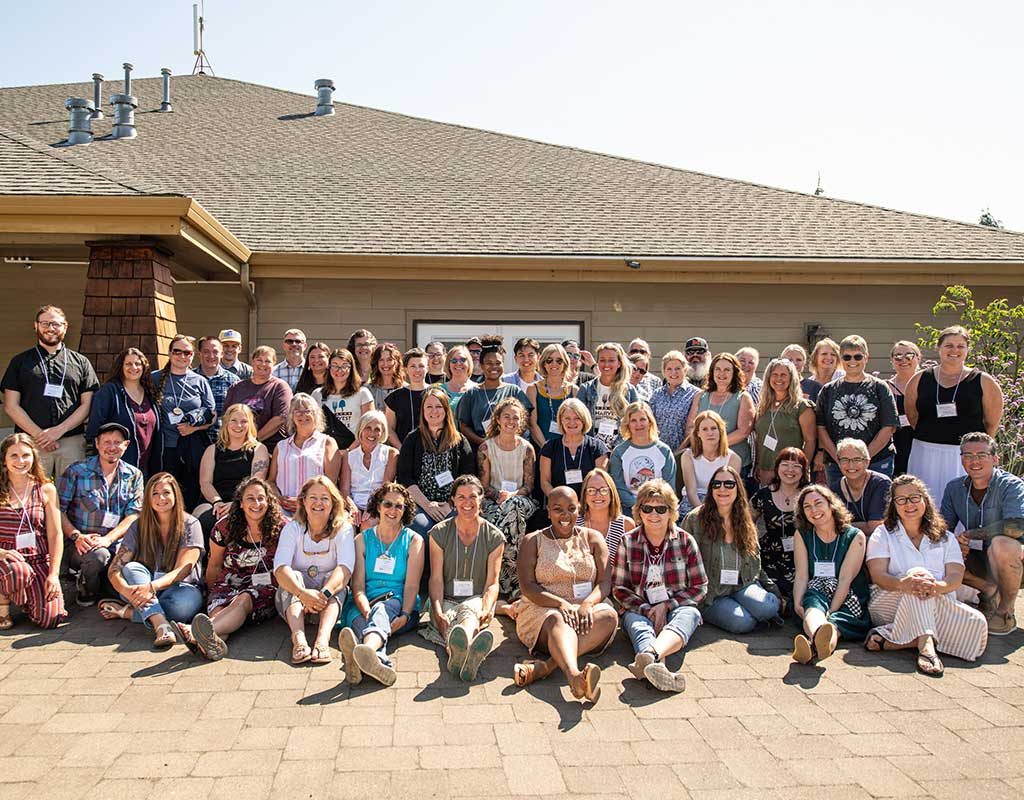
The K-12 Farm to School Institutes Summer Retreat participants. Photo credit: Ben Anang via FLI Social

WEBPAGE
Welcome to the K – 12th grade Farm to School Institute
Farm to school programming enriches the connection that communities have with fresh, culturally relevant foods and local food producers by supporting gardening, agricultural education, and local food purchasing at schools and early childhood education sites.

PRESS RELEASE

PROJECT